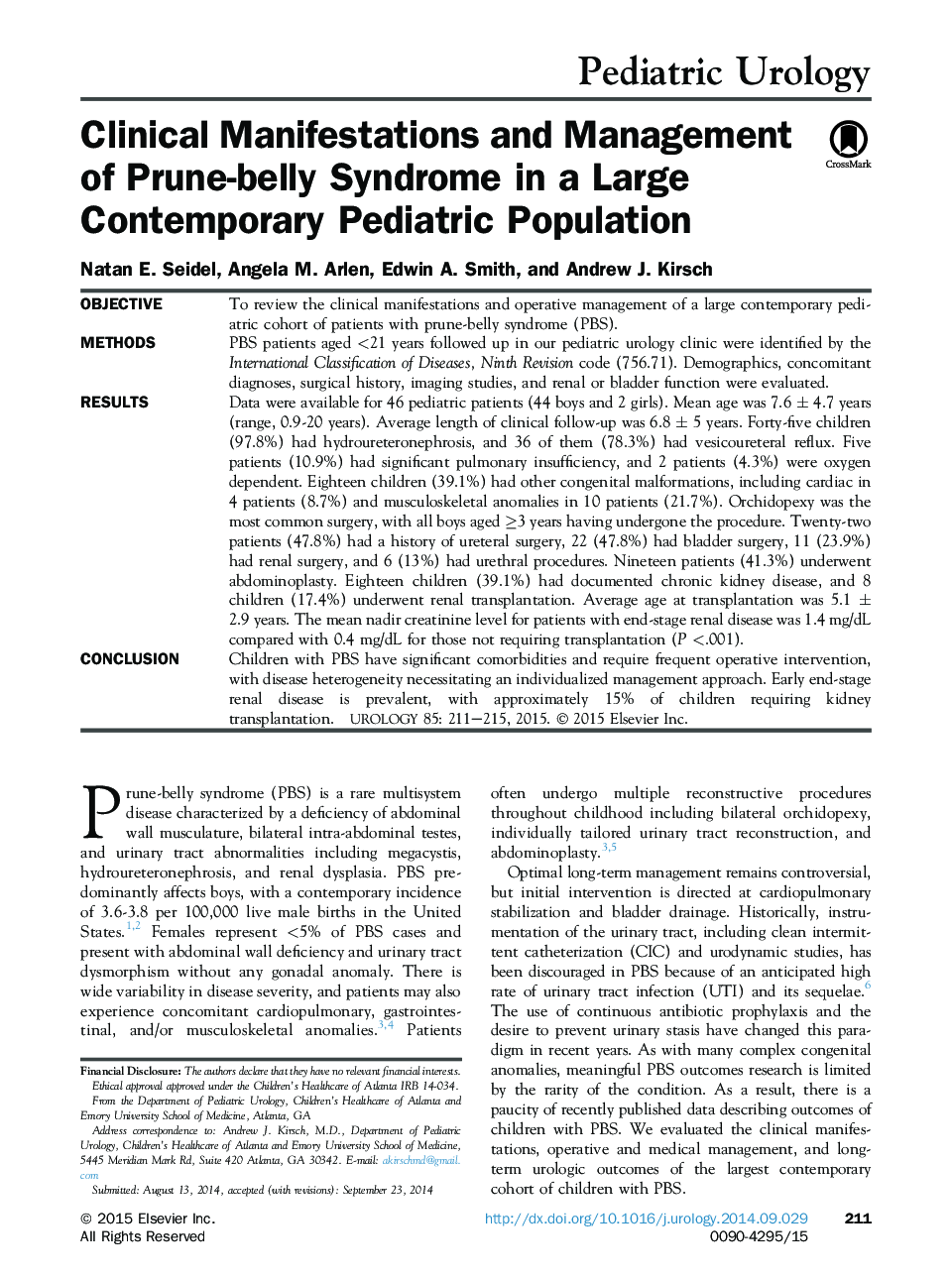| کد مقاله | کد نشریه | سال انتشار | مقاله انگلیسی | نسخه تمام متن |
|---|---|---|---|---|
| 3899058 | 1250313 | 2015 | 5 صفحه PDF | دانلود رایگان |
ObjectiveTo review the clinical manifestations and operative management of a large contemporary pediatric cohort of patients with prune-belly syndrome (PBS).MethodsPBS patients aged <21 years followed up in our pediatric urology clinic were identified by the International Classification of Diseases, Ninth Revision code (756.71). Demographics, concomitant diagnoses, surgical history, imaging studies, and renal or bladder function were evaluated.ResultsData were available for 46 pediatric patients (44 boys and 2 girls). Mean age was 7.6 ± 4.7 years (range, 0.9-20 years). Average length of clinical follow-up was 6.8 ± 5 years. Forty-five children (97.8%) had hydroureteronephrosis, and 36 of them (78.3%) had vesicoureteral reflux. Five patients (10.9%) had significant pulmonary insufficiency, and 2 patients (4.3%) were oxygen dependent. Eighteen children (39.1%) had other congenital malformations, including cardiac in 4 patients (8.7%) and musculoskeletal anomalies in 10 patients (21.7%). Orchidopexy was the most common surgery, with all boys aged ≥3 years having undergone the procedure. Twenty-two patients (47.8%) had a history of ureteral surgery, 22 (47.8%) had bladder surgery, 11 (23.9%) had renal surgery, and 6 (13%) had urethral procedures. Nineteen patients (41.3%) underwent abdominoplasty. Eighteen children (39.1%) had documented chronic kidney disease, and 8 children (17.4%) underwent renal transplantation. Average age at transplantation was 5.1 ± 2.9 years. The mean nadir creatinine level for patients with end-stage renal disease was 1.4 mg/dL compared with 0.4 mg/dL for those not requiring transplantation (P <.001).ConclusionChildren with PBS have significant comorbidities and require frequent operative intervention, with disease heterogeneity necessitating an individualized management approach. Early end-stage renal disease is prevalent, with approximately 15% of children requiring kidney transplantation.
Journal: Urology - Volume 85, Issue 1, January 2015, Pages 211–215
